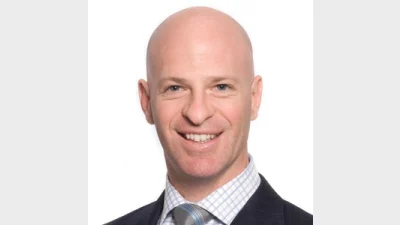Institutions or boutiques? It's substance not size that really counts



As recent events have made abundantly clear, no one is immune to the global financial crisis — regardless of reputation, size or previous long-standing success. Lehman Brothers, Merrill Lynch, Bear Stearns, AIG, Babcock & Brown (to name a few) are all headline examples, with many other household names still fighting for survival.
The Australian-sourced investment management market fell 10.7 per cent or $345 billion during the December 2008 quarter. This marks a drop of 21 per cent since the market peak in December 2007.
Funds under management are now at the same level as September 2006.
Likewise, contributions into superannuation fell 24 per cent from the peak levels when the ‘Better Super’ changes were introduced.
Clearly, our industry faces a myriad of challenges, but while the halcyon days seem to have passed, opportunities will continue to arise.
Debate and speculation around who will survive these tough market
conditions and emerge strong enough to seize subsequent opportunities is escalating.
In the funds management arena, much discussion is focused on size: who is better suited to weather the financial storm — the small, nimble boutique manager or the larger institutional managers with sizeable funds under management?
But as the demise of the dinosaurs showed, size alone is not a determinant for survival, let alone success. When it comes to fund manager resilience, it’s substance, not size, that counts.
A sustainable business model
There is no such thing as a recession-proof business model. However, there are key factors beyond business size that can help ensure a fund manager’s long-term survival. Embracing a sustainable business model is critical.
There are several acknowledged fundamentals of a successful fund manager.
- Capital strength: a strong balance sheet, adequate capital reserves and/or a guaranteed source of funds inflow are a critical part of a successful funds management business. This helps ensure the manager has the ability to ride out any economic fluctuations, which can affect inflows and performance over the short term, while not being distracted by the revenue implications of rising/falling funds under management.
- A clear mandate to manage money: the manager needs to be able to do what they do best, manage money. Regardless of business structure, the asset management team needs to be removed from the distractions of day-to-day operational issues, ensuring they have the freedom to concentrate on delivering quality investment outcomes to clients.
- The opportunity and incentive to outperform: the asset management team needs to have the freedom and support to make investment decisions and, in turn, be rewarded in a manner which is aligned with investors’ objectives.
- Several research houses have thrown their weight behind the importance of a sustainable business model. Zenith, Lonsec and Standard & Poor’s have all recently gone on record reinforcing the critical role that organisational sustainability plays in the long-term survival of a fund manager.
All noted that their review processes needed to capture more detailed information about the operational aspects of a manager to determine long-term viability.
Quality people are paramount
The high degree of key person risk in an asset management team is well documented. We’re not surprised when the departure of an asset management head is followed by outflows from the fund they once managed.
Key person risk means finding the right people with the strong cultural alignment and watertight reasons to remain with the team (eg, ownership in the business, long-term incentives, and co-investment in the fund) will be critical. In their absence, staff retention and achieving alignment with investors will be challenging.
The rise of boutiques
The surge of boutiques entering the marketplace in recent years (which admittedly has slowed in the past 12 months) suggests that, at the very least, there is some dissatisfaction with the larger institutional players.
Perhaps more importantly, the growth in boutiques has served to illustrate a continued desire to be self-employed and work in an entrepreneurial culture free from many of the common distractions at the larger institutions.
However, respected industry figures are predicting consolidation in the Australian funds management industry, with the current number of managers unsustainable given our market size.
While fund manager consolidation may be inevitable, the defining factor will be the business model: those with a sustainable business model will be the ones that survive, and the institutional versus boutique issue will ultimately have little affect on the outcome.
Once business sustainability has been challenged, all other characteristics of both institutional and boutique models should be open to review and assessment on their own merits.
Business decisions need to be made within today’s context, but without losing sight of the longer-term goals and future repercussions. Navigating through these turbulent markets is, undeniably, challenging. But there are still plenty of opportunities in the marketplace and we remain focused on these.
Jarrod Brown is chief executive of Bennelong Funds Management.
Recommended for you
Evidentia’s chief investment strategist Nathan Lim has announced his retirement after a 30-year career.
GQG Partners has marked its fifth consecutive month of outflows as its AI concerns lead to fund underperformance but overall funds under management increased to US$166.1 billion.
Apostle Funds Management is actively pursuing further partnerships in Asia and Europe but finding a suitable manager is a “needle in a haystack”.
Managed account provider Trellia Wealth Partners, formed from the merger between Betashares and InvestSense, has appointed its first managing partner.










